Cornus racemosa, gray dogwood, is a native deciduous multi-stemmed shrub to small tree. There are several species of dogwood in NJ. A few features are given here to help with identification. Gray dogwood blooms in late spring to early summer.The scientific name, Swida racemosa, is frequently used
Flowers
Inflorescence - flower cluster:
The gray dogwood flower clusters are terminal (at the tips of branches). The clusters are cone shaped and are about 1-3" across and the same tall. This shape of the cluster helps distinguish gray dogwood from other dogwoods. Photos show side views.
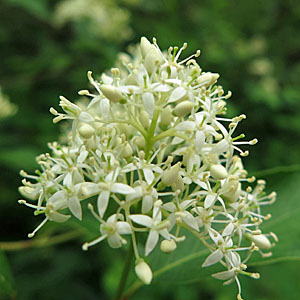
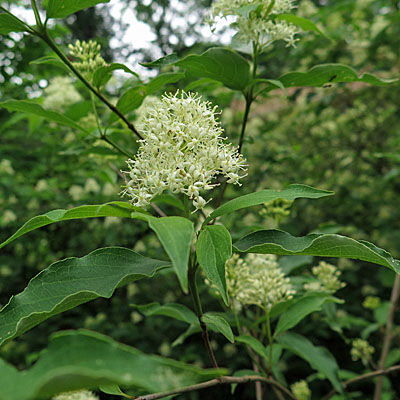
Individual flowers:
The flowers are creamy white and about 1/4 inches wide with 4 petals and 4 stamens. The style is long. The flower to the far right is more mature and the stamens have fallen off as the fruit develops.
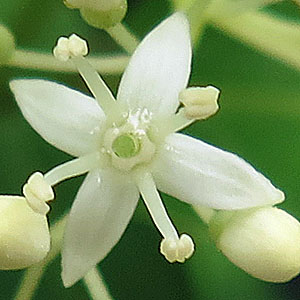
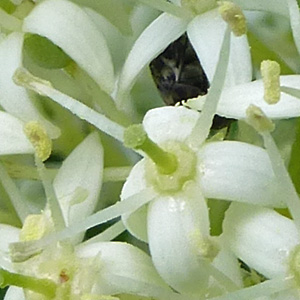
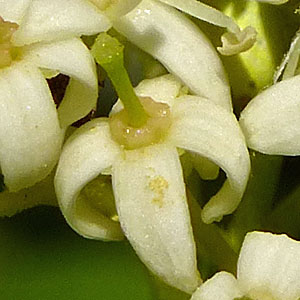
Fruit
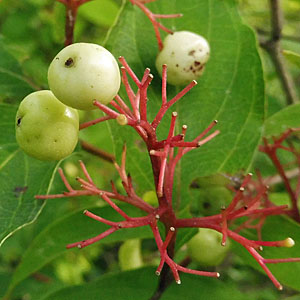
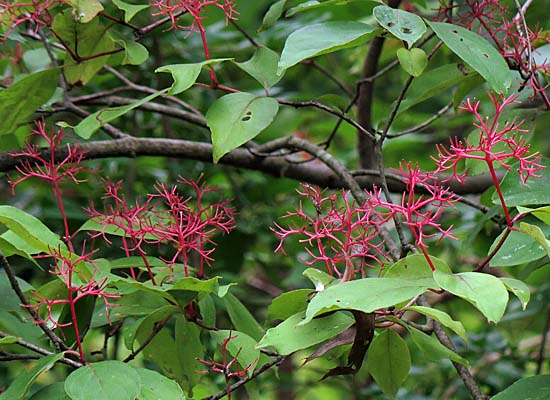
The white berry-like drupes on the gray dogwood help distinguish it from other dogwoods. The drupes are about ¼ inch in diameter. The berry stalks become bright red. When all the berries are gone, the stalks remain and provide color.
Leaves and Plant
The leaves are simple and opposite with prominent curved lateral veins as in all dogwoods. Gray dogwood has 3 or 4 veins per side. The leaf tip is long and slender, the base is rounded or tapered. The shrub grows to about 6-8 ft.
The winter bark is brown or gray.
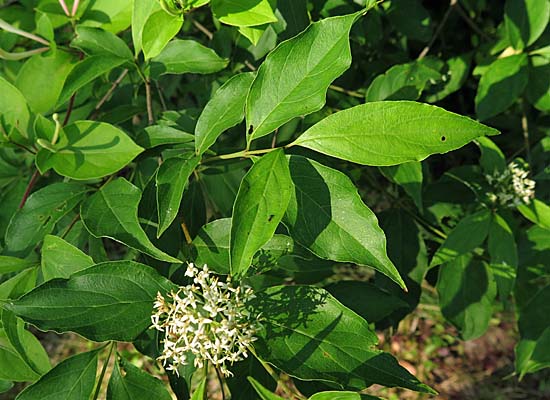
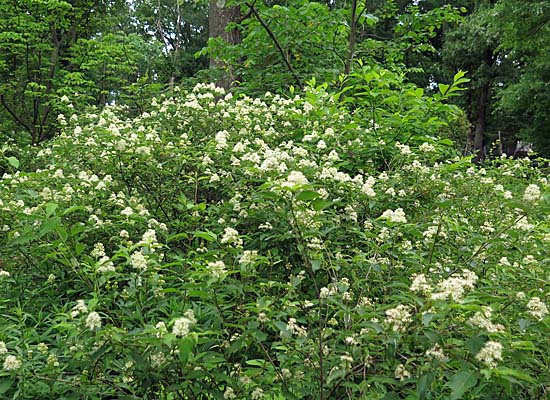
Text by Millie Ling and all photos by Hubert & Millie Ling: flowers - June, fruit August, cultivation, NJ
Cultivation
The cultivation material below is courtesy of
Jersey Friendly Yards searchable plant database: Cornus racemosa
Use in masses in shrub borders, screen plantings, or wildlife gardens. It is also a good choice for rain gardens or the edges of ponds or streams.
Hardiness Zone: 6a, 6b, 7a, 7b
Physiographic Region: All Regions in NJ
Salt Tolerance: Low to None
Soil Type: Loam, Organic, Clay
Soil Moisture: Well-drained, Medium-drained, Wet
Soil pH: Acidic, Slightly Acidic, Neutral
Optimal Light: Partial Shade
Light Range: Full Sun, Partial Shade, Shade
Drought Tolerance: Medium
Growth Rate: Medium
After the plant gets large it may spread by suckering
Additional information
Additional information / references:
The USDA website shows its distribution in the US and other information,
https://plants.usda.gov/core/profile?symbol=CORA6
Go Botany indicate species that are very similar and feature variations:
https://gobotany.nativeplanttrust.org/species/swida/racemosa/
Good gardening information: Jersey Friendly Yards
https://www.jerseyyards.org/plant/cornus-racemosa//
Minnesota Wildflowers has good descriptions of the plant parts:
https://www.minnesotawildflowers.info/shrub/gray-dogwood